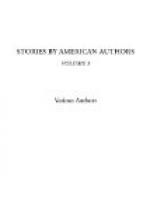road to Philippopolis was crowded with wounded and
refugees. Peasant families struggled along with
all their household goods piled upon a single cart.
Ammunition wagons and droves of cattle, rushing along
against the tide of human beings, toward the distant
bivouacs, made the confusion hopeless. Night was
fast coming on, and in company with a Cossack, who
was, like myself, seeking the headquarters of General
Gourko, I made my way through the tangle of men, beasts,
and wagons toward the town. It was one of those
chill, wet days of winter when there is little comfort
away from a blazing fire, and when good shelter for
the night is an absolute necessity. The drizzle
had drenched my garments, and the snow-mud had soaked
my boots. Sharp gusts of piercing wind drove
the cold mist along, and as the temperature fell in
the late afternoon the slush of the roads began to
stiffen, and the fog froze where it gathered.
Every motion of the limbs seemed to expose some unprotected
part of the body to the cold and wet. No amount
of exercise that was possible with stiffened limbs
and in wet garments would warm the blood. Leading
my horse, I splashed along, holding my arms away from
my body, and only moving my benumbed fingers to wipe
the chill drip from my face. It was weather to
take the courage out of the strongest man, and the
sight of the soaked and shivering wounded, packed
in the jolting carts or limping through the mud, gave
me, hardened as I was, a painful contraction of the
heart. The best I could do was to lift upon my
worn-out horse one brave young fellow who was hobbling
along with a bandaged leg. Followed by the Cossack,
whose horse bore a similar burden, I hurried along,
hoping to get under cover before dark. At the
entrance to the town numerous camp-fires burned in
the bivouacs of the refugees, who were huddled together
in the shelter of their wagons, trying to warm themselves
in the smoke of the wet fuel. I could see the
wounded, as they were jolted past in the heavy carts,
look longingly at the kettles of boiling maize which
made the evening meal of the houseless natives.
Inside the town the wounded and the refugees were
still more miserable than those we had passed on the
way. Loaded carts blocked the streets. Every
house was occupied, and the narrow sidewalks were crowded
with Russian soldiers, who looked wretched enough
in their dripping overcoats, as they stamped their
rag-swathed feet. At the corner, in front of
the great Khan, motley groups of Greeks, Bulgarians,
and Russians were gathered, listlessly watching the
line of hobbling wounded as they turned the corner
to find their way among the carts, up the hill to
the hospital, near the Konak. By the time I reached
the Khan the Cossack who accompanied me had fallen
behind in the confusion, and without waiting for him
I pushed along, wading in the gutter, dragging my
horse by the bridle. Half way up the hill I saw
a crowd of natives watching with curiosity two Russian
guardsmen and a Turkish prisoner. The latter
was evidently exhausted, for he was crouching in the
freezing mud of the street. Presently the soldiers
shook him roughly and raised him forcibly to his feet,
and half supporting him between them they moved slowly
along, the Turk balancing on his stiffened legs and
swinging from side to side.




